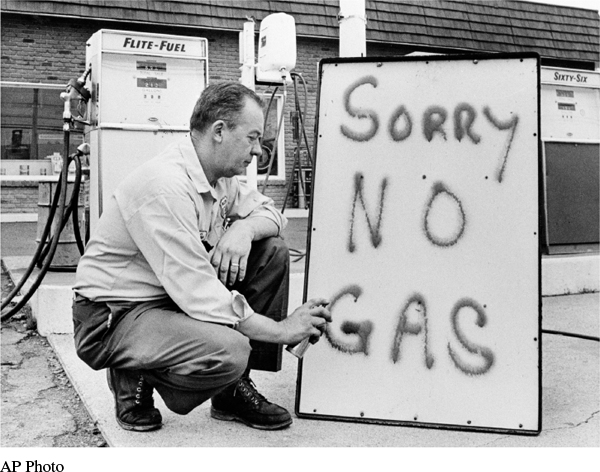Crisis in the Middle East and at Home
Nixon’s diplomatic initiatives, however, failed to resolve festering problems in the Middle East. Since its victory in the Six-Day War of 1967, Israel had occupied territory once controlled by Egypt and Syria as well as the former Palestinian capital of Jerusalem. On October 6, 1973, during the start of the Jewish High Holidays of Yom Kippur, Egyptian and Syrian troops, fortified with Soviet arms, launched a surprise attack on Israel. An Israeli counterattack, reinforced by a shipment of $2 billion of American weapons, repelled Arab forces, and the Israeli military stood ready to destroy the Egyptian army. To avoid a complete breakdown in the balance of power, the United States and the Soviet Union agreed to broker a cease-fire that left the situation the same as before the war.
U.S. involvement in the struggle between Israel and its Arab enemies exacerbated economic troubles at home. On October 17, 1973, in the midst of the Yom Kippur War, the Organization of Petroleum Exporting Countries (OPEC) imposed an oil embargo on the United States as punishment for its support of Israel. As a result of the embargo, the price of oil skyrocketed. The effect of high oil prices rippled through the economy, leading to increased inflation and unemployment. The crisis lasted until May 1974, when OPEC lifted its embargo following six months of diplomacy by Kissinger.

REVIEW & RELATE
Why did Nixon pursue cooperation with the Soviet Union and China?
How did Nixon’s Middle East policy affect Americans at home?
Exploring American HistoriesPrinted Page 933
Exploring American Histories Value EditionPrinted Page 690
Chapter Timeline